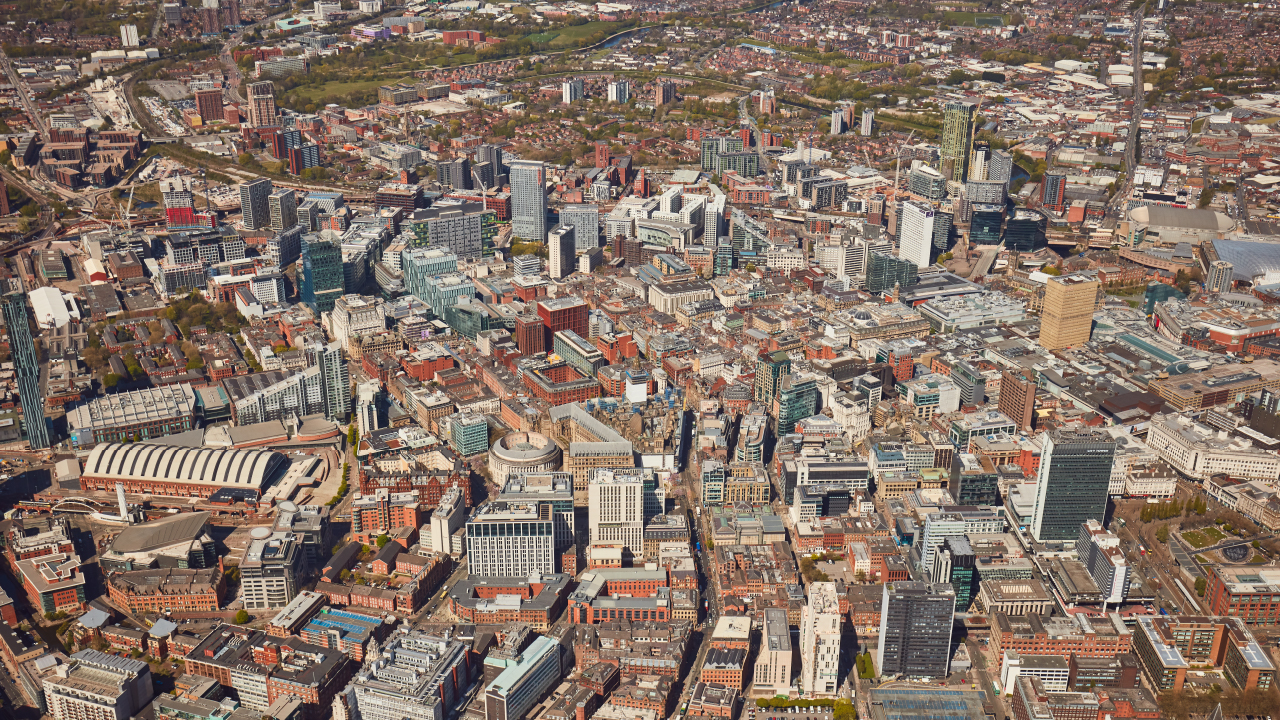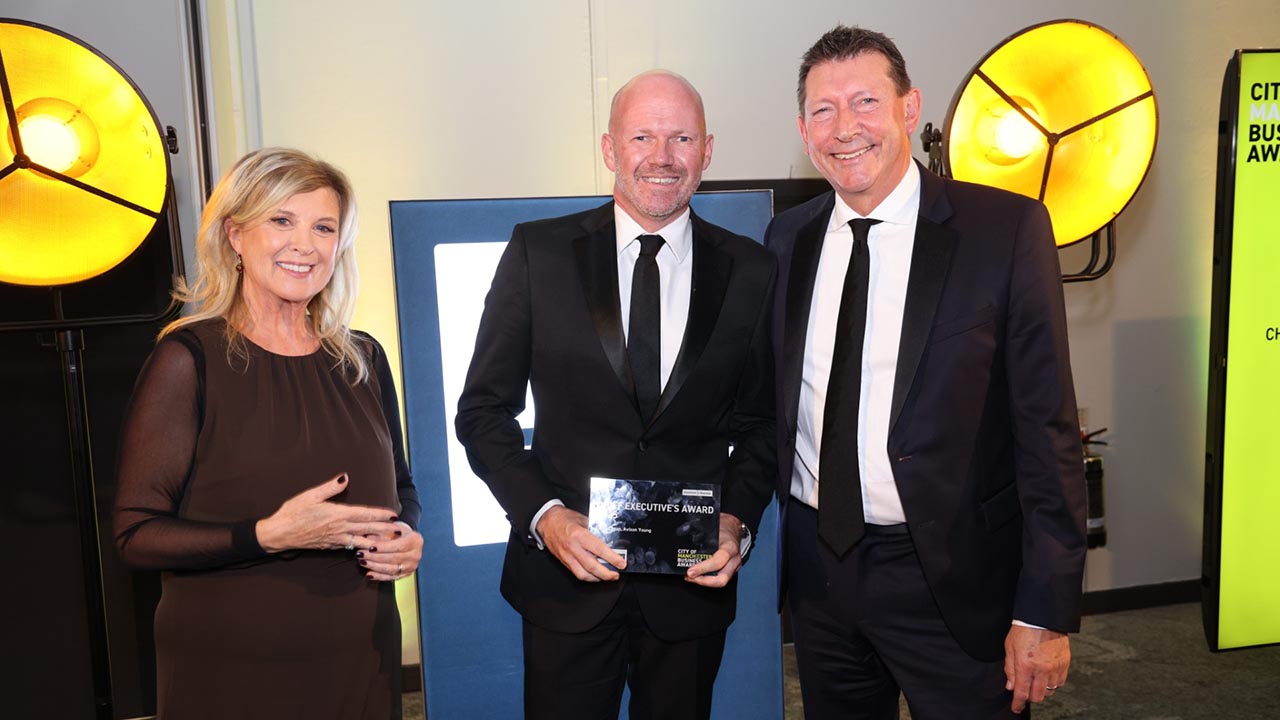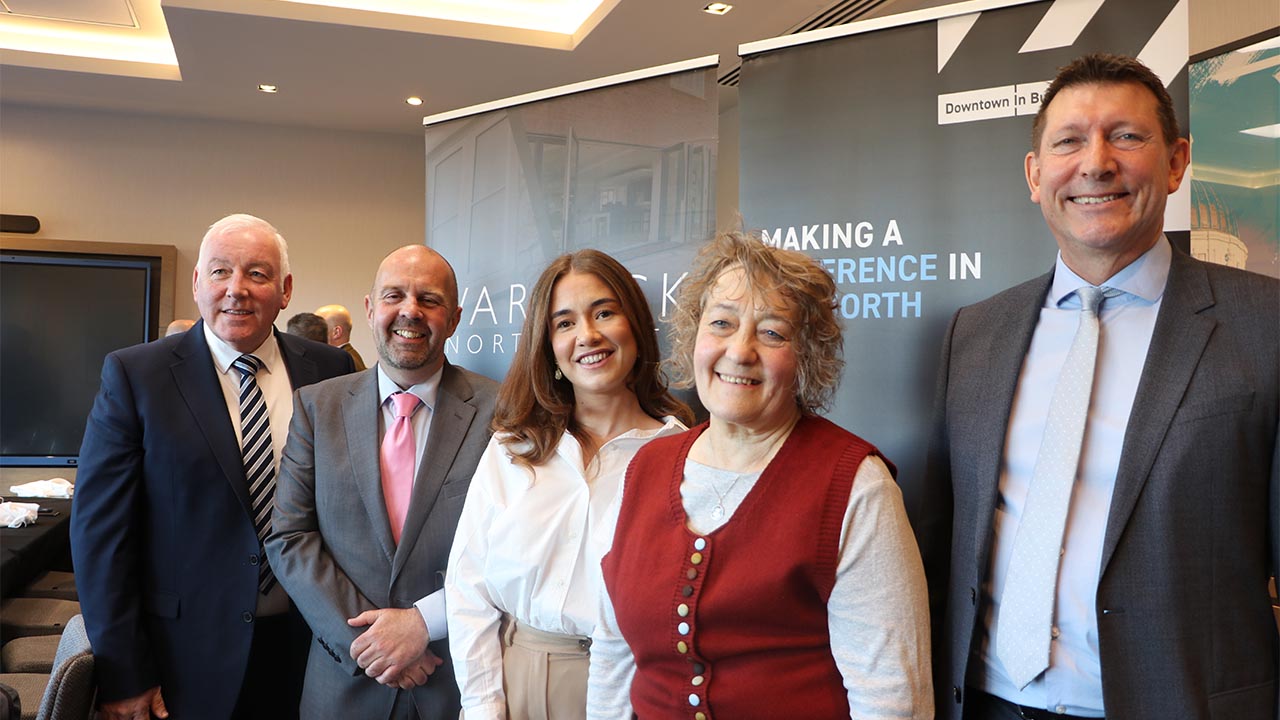- Arrival of 107 new science and tech businesses and expansion of a further 35 at Manchester and Cheshire’s leading innovation hubs supports expectation of significant growth trajectory for Manchester in 2024.
- Recent strategic investments, including £243m this past year from Bruntwood SciTech into new state-of-the-art workspaces across Manchester highlight the city’s dedication to supporting growth and innovation.
- Manchester and Cheshire’s science and tech ecosystems are fostering substantial economic development, with high growth sectors such as digital technology, life sciences and fintech contributing significantly to the regional economy.
Manchester’s bid to fulfil expectations that it will be the fastest growing UK city in 2024 have been handed a boost with 142 high-growth businesses announcing office and lab openings or expansions in innovation hubs across both the city and in Cheshire this year.
Earlier this year, leading UK economic forecasting group, EY ITEM Club, projected that Manchester would become the UK’s fastest growing city, with an expected GVA uptick of 1.8%, citing the region’s focus on attracting talent to value-add sectors as an example for other cities to follow. The coming years are also projected to see the city and surrounding region continue their strong growth trajectory, with GVA in 2026 expected to be £2bn higher than it was in 2022.
Growth in the number of innovative and R&D intensive businesses choosing the city and surrounding region as their home or base for expansion is set to continue cementing the region’s status as leading employment hubs for key sectors like digital technology, life sciences and fintech. Indeed, in 2023 Manchester rounded out the year with one of the UK’s highest populations of high-growth tech companies, with 305 calling the city their home – a figure that’s expected to have risen in 2024 with the new arrivals.
Amongst the cohort of exciting new organisations moving into the region’s city centre innovation hubs in 2024 are global cybersecurity firm SafetyCulture, which has established operations at Bond on Mosley Street, and AO.com, the online electrical ecommerce giant, which has chosen 111 Piccadilly for a satellite creative hub to better leverage the region’s rich skilled talent pool and access direct collaboration opportunities with other like-minded tech businesses based at the building. UK Biobank – the world’s most significant source of data and biological samples for health research, – is also moving its headquarters to Manchester Science Park’s Greenheys development that began construction this year. The move highlights the potential for such businesses in Manchester with open opportunities for collaboration between researchers and industry.
Supporting Manchester’s growing innovation ecosystem
The ecosystem drawing these rapidly growing businesses to the region is underpinned by key players like Bruntwood SciTech – the UK’s largest property provider dedicated to the growth of the innovation economy. The company is supporting demand for specialist workspace, having committed £243m of investment in developments across Manchester city centre in this past year alone, including bringing forward projects totalling 727,000 sq ft of new workspace like the redevelopment of Pall Mall on King Street and No. 3 Circle Square.
A joint venture between Bruntwood, Legal & General and Greater Manchester Pension Fund, Bruntwood SciTech is also underway with refurbishments aimed at catering to the needs of innovation-led businesses and disruptors at Kings House, 117 Portland Street and the Renold Building – the first refurb at the newly renamed £1.7bn innovation district and neighbourhood, Sister, formerly ID Manchester, in partnership with the University of Manchester.
Bruntwood SciTech has seen first-hand what being part of these supportive clusters can do for growth-oriented businesses, having welcomed 107 new businesses into its workspaces in Manchester and Cheshire and helping to facilitate the expansion of 35 existing startups, scaleups and global companies in 2024 across its 21 city centre innovation hubs and five campuses – including Circle Square, Citylabs, Bloc, Bond and Alderley Park.
Joining Bruntwood SciTech’s 400-strong network of science, tech and innovation businesses in Manchester and Cheshire, the 142 new arrivals and expanding businesses benefit from Bruntwood SciTech’s partnerships and gaining direct access to the region’s unique strengths of highly skilled talent, research expertise, connectivity to work with its universities and NHS, opportunities to access funding, and state-of-the-art workspaces in like-minded communities – all of which have contributed to putting Manchester on the global stage as a world class innovation ecosystem, and a major contributor pivotal to the city’s economic growth.
Companies like UrbanChain, an energy tech firm that started with two coworking desks in the Tech Incubator at Circle Square are thriving within this ecosystem, having expanded multiple times within the Bruntwood SciTech portfolio through leveraging business support services and its partner network, now occupying bespoke space at Base at Manchester Science Park. Northern Gritstone, a key investor in Manchester’s science and tech sector, has also doubled its footprint at Circle Square since 2022 with the ease of access to the campus’ ecosystem proving to unlock a number of unique investment and collaboration opportunities with innovative and disruptive businesses across the city.
Other new arrivals, including Blueskeye AI – computational face analysis experts leveraging Manchester’s tech ecosystem at the Tech Incubator, and Third Equation – specialists in sustainable energy grid management establishing a presence at Alderley Park, highlight the draw and quality of Bruntwood SciTech’s innovation hubs in the region. Hubs like Alderley Park offer access to a partner network of investors and unique opportunities for collaboration that are specifically designed to help growing businesses expand. Central to this has been the expansion of the Female Founders Incubator in Manchester and Cheshire as well as in Leeds, offering six ambitious entrepreneurs per location access to a focused support and mentorship programme, and a newly launched Life Sciences Accelerator at Alderley Park, providing comprehensive support and specialist facilities to fuel early-stage innovators’ growth and development.
Manchester has also seen many companies establish roots and continue their growth in the city centre with long-standing businesses like Mobysoft, a software provider expanding at Manchester One on Portland Street, and food delivery app Deliveroo at 5 New York Street.
Located within Manchester’s Oxford Road Corridor knowledge quarter – home to more than half of the city’s life science companies – Citylabs and Manchester Science Park have become integral hubs for healthcare innovation. Through Bruntwood SciTech’s joint venture partnership with Manchester University NHS Foundation Trust (MFT), life science and biotech companies are able to scale faster and make real improvements in healthcare happen for the people of Greater Manchester at pace through collaborations with MFT and direct access to joint clinical trials, sample supply, diagnostic collaborations and medtech adoption.
Nuffield Health, a Citylabs customer for over eight years, has this year extended their occupancy at Citylabs 1.0 where they operate a diagnostics centre and collaborate with MFT hospitals to advance patient diagnostics and care pathways. Similarly, Apis Assay Technologies located at Citylabs, has this year deepened its partnership with MFT’s genetics department, using access to clinical samples and expertise to drive new breakthroughs in personalised healthcare diagnostics. Gentronix, recently acquired by ScanTox, has also experienced steady growth by leveraging Alderley Park’s specialist lab facilities and large life sciences community to expand its toxicology services. Together, these companies demonstrate Manchester’s position as a world-leading life sciences and innovation hub, ranked third only behind Oxford and Cambridge in the UK for growth in the sector. Supporting this status is the ongoing evolution of Citylabs, seeing a £42m investment into the development of Citylabs 4.0 to provide additional specialist lab space for businesses seeking to advance collaborations within Manchester’s expanding life sciences ecosystem.
Josh Whiteley, Commercial Director for Bruntwood SciTech, said: “Manchester and Cheshire are at the forefront of the UK’s science, tech and innovation landscape, and we are proud to play a pivotal role in this growth. The influx of new, disruptive businesses and the expansion of existing ones at our innovation hubs illustrates the demand for high-quality workspaces that support the evolving needs of fast-growing companies in the region.
“Continuing to support the needs of high R&D-spending and innovative companies is pivotal in maintaining our status as being a major economic powerhouse for the UK. By providing state-of-the-art environments tailored to the needs of both startups and established firms, we are not only contributing to the city’s economic growth but also reinforcing its position as an attractive destination for talent and investment. As Manchester continues to draw global and disruptive, pioneering brands and skilled professionals, Bruntwood SciTech remains dedicated to providing workspaces that empower these companies to flourish and shape the future of innovation in the region.”
Greg Dujon, CEO of Third Equation Ltd, said: “During our strategic review, we sought to optimise every aspect of our business, including location. We created detailed criteria, focusing on key factors such as grid connectivity, access to talent, proximity to customers, transport links, sustainability, and a great working environment. To justify the investment, we needed to meet at least 80% of these criteria. Alderley Park exceeded our expectations, making the decision to move straightforward. Today, we’re enjoying the benefits, with customers visiting our campus and our ability to showcase our latest technology in real-world conditions within our lab.”









